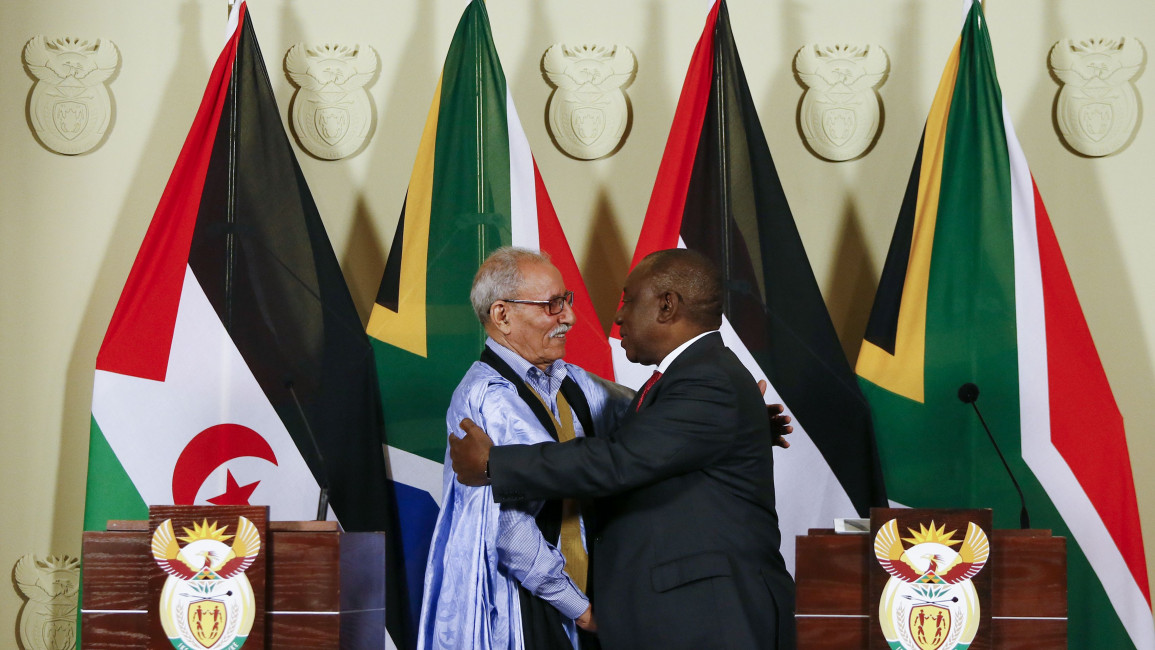Morocco slams South Africa for 'glamorous and cinematic' reception of Polisario Front leader
Morocco's foreign minister on Thursday slammed South Africa after it welcomed the leader of the Western Saharan pro-independence Polisario Front to Pretoria earlier this week.
During a joint press conference with his Belgian counterpart Hadja Lahbib, Morocco's Foreign Minister Nasser Bourita dismissed South Africa's welcome of Polisario Front leader Brahim Ghali to the country on Tuesday as "glamorous, noisy and cinematic".
He said that the "glamour and clamour" of the event was to distract from South Africa's inability to influence many other African nations to support Western Sahara's independence.
Morocco took control of the territory in 1975, following the end of Spanish colonial rule. The Polisario Front, originally founded in 1973 to fight for independence against Spain, has been fighting and campaigning for independence ever since.
The sovereignty of Western Sahara has become a major international sticking point, with some countries, including the US and some European nations, saying they back Rabat's plan to give the Western Sahara region autonomous rule but to remain under Moroccan sovereignty.
Bourita said South Africa is "on the wrong side of history" for backing Western Sahara's full-fledged independence.
During Ghali's visit, Ramaphosa condemned Morocco's "illegal occupation" of Western Sahara and reiterated South Africa's "unapologetic" backing for the territory's independence.
"Until the people of Western Sahara are able to exercise their own right to self-determination, the decolonisation of Africa will be incomplete," Ramaphosa said.
|
The Polisario Front, which claims to represent the Sahrawi people, fought a 15-year-long guerrilla war against Morocco beginning in 1975.
In 1991, the UN announced a ceasefire in the province and sent its peacekeeping forces to monitor a referendum on the territory's status.
The vote was aborted by Morocco who said that only "autonomy", not independence, was on the table.
Negotiations have been at a standstill, with numerous UN-sponsored talks failing to make a breakthrough.
South Africa formally recognised Western Sahara's independence in 2004.
Around 84 countries have recognised the independence of the territory over the course of the conflict, although some have withdrawn recognition recently.



